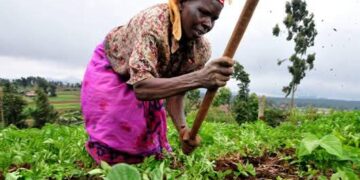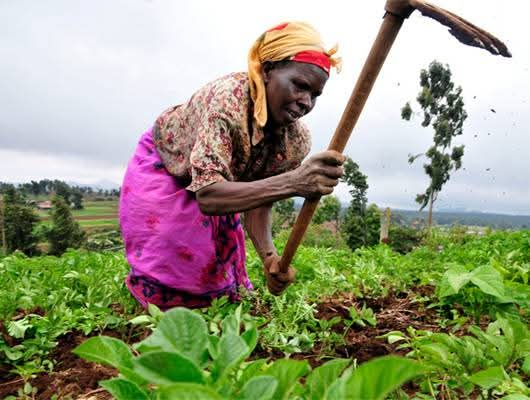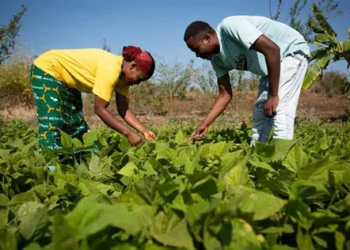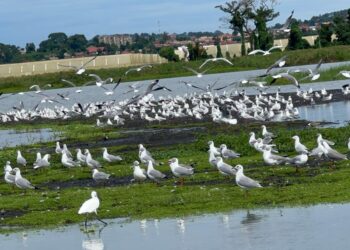OPINION
Recently, the state minister for finance, Hon. Henry Musaasizi has presented a final budget estimate of UGX 71.96 trillion for the 2025/2026 Financial Year to Parliament’s Budget Committee, highlighting a slight reduction of Shs 176 billion of the overall resource envelope for FY 2025/26 from the approved budget for FY 2024/25 of Shs 72.136 trillion.
The presented Annual Budget Estimates for FY2025/26 represents a significant increase from the previously proposed amount of UGX 57.4 trillion, which the ministry claims the reflects government’s priorities outlined in the National Development Plan IV (NDP IV).
Although it is noted that the budget strategy for FY 2025/2026 aims at strengthening economic growth drivers, particularly those related to the government’s ten-fold GDP expansion strategy which includes agro-industrialization remains underfunded.
It is concerning that the agro-industrialisation sector that is a cornerstone of Uganda’s Fourth National Development Plan (NDP IV), which aims to expand the economy tenfold by 2040 and plays a key vital role especially for the rural communities that depend on agriculture, the resources do not align with the stated budgetary priority area. For instance, in the FY 2025/26, agro-industrialization was allocated UGX 1.689 trillion. This allocation represents a 6.86% decrease from the UGX 1.814 trillion allocated in FY 2024/25. Despite the sector’s strategic significance, the current allocation constitutes only 2.4% of the National budget, down from 2.9% in the previous fiscal year.
Notably, agriculture plays a central role in Uganda’s economy and is a source of livelihood for a significant proportion of Ugandans where the sector contributes approximately 24.7% to the Country’s Gross Domestic Product (GDP) and according to the Uganda Bureau of Statistics (UBOS), approximately 68% of the working population is employed in the sector, however, in the FY2025/26 budget framework, the sector’s resources were reduced to about UGX 1.589 trillion in FY2025/26 from UGX 1.605 trillion in FY2024/25, despite the government’s commitments to invest in agricultural transformation. This decline in the agriculture sector’s budget may undermine the sector’s potential.
Additionally, the sector’s allocations encompass both domestic and external finances where domestic funding is approximately UGX 640.06 billion down from UGX 1.135 trillion in the previous fiscal year and the external financing is projected to increase to UGX 1.048 trillion up from UGX 929.26 billion in FY2024/2025. This shift indicates a growing reliance on external sources to fund agriculture programmes and this greatly contributes to financial instability and economic crises as the agricultural economy becomes vulnerable to changes in donor priorities and funding levels.
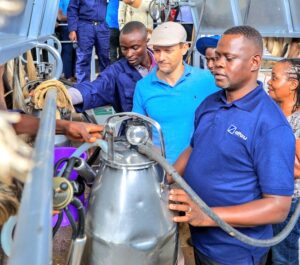
The agriculture’s substantial contribution underscores the sector’s pivotal role in Uganda’s economy, serving as a primary source of employment and it encompasses various activities, including crop production, livestock farming, fishing and forestry, which are integral to both domestic consumption and export earnings. Through the Uganda Green Growth Development Strategy(UGGDS), the Ugandan Government identified agricultural sector as one of the most viable and priority sectors for promoting green growth.
Unfortunately, allocations for the 2025/2026 budget for the agricultural sector do not reveal governments commitment to strengthening the sector to realise green jobs and economic development while pursuing a low carbon pathway as the budget declines.
Therefore, if the economic growth is to be felt by all Ugandans especially ordinary citizens who depend more on agriculture, the government must ensure that the budget allocations for the agricultural sector for FY 2025/2026 is increased since the sector has the potential to create jobs, improve community livelihoods and sustainability, contributes to Gross Domestic Product (GDP) as well as mitigating climate change effects. There is also a need to fully implement Uganda’s Green Growth Development strategy to ensure sustainability and creation of green jobs.
By Olive Atuhaire,
The writer is a Research Associate – AFIEGO
Email: atuhaireolivia72.ao@gmail.com
